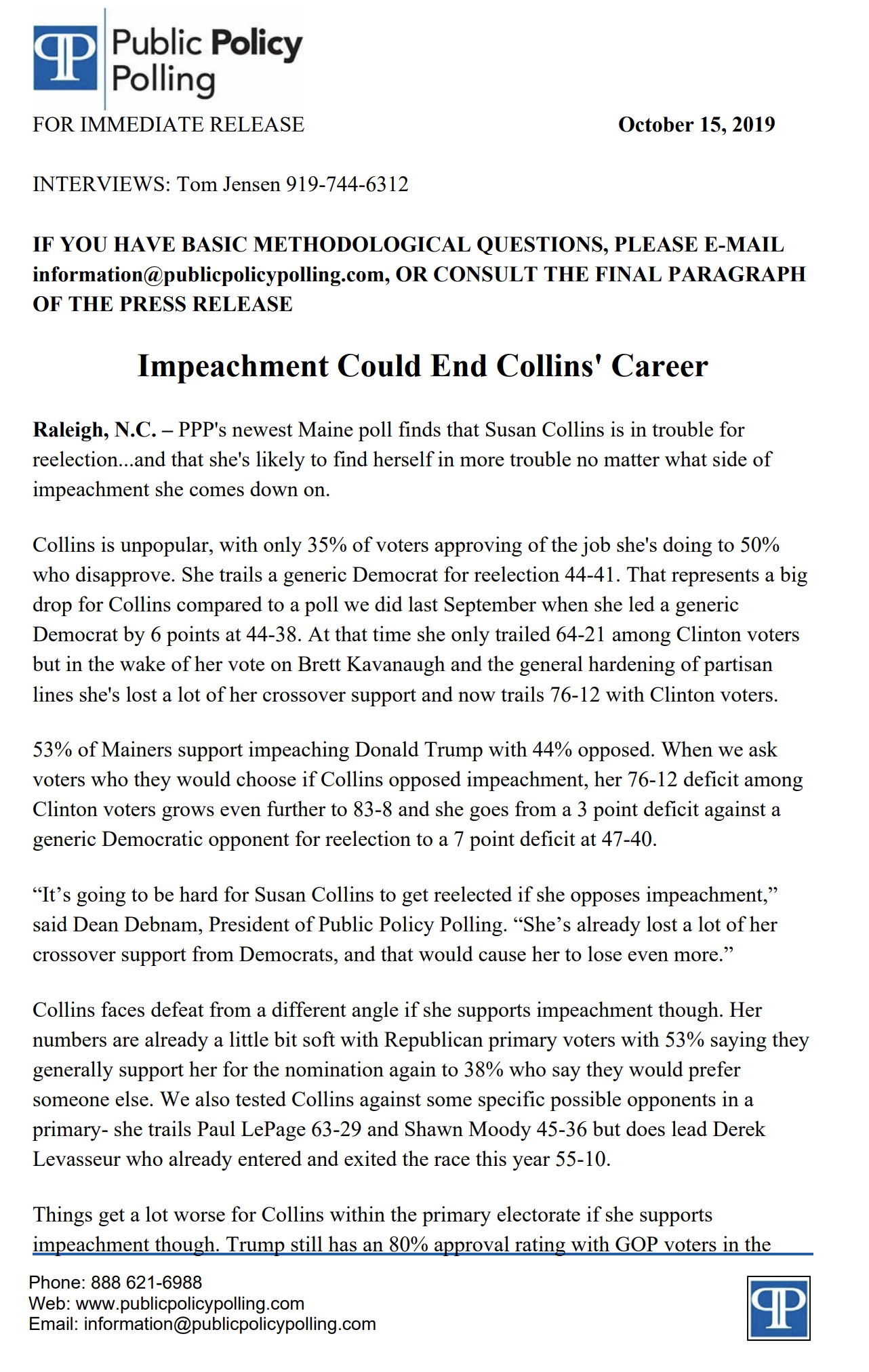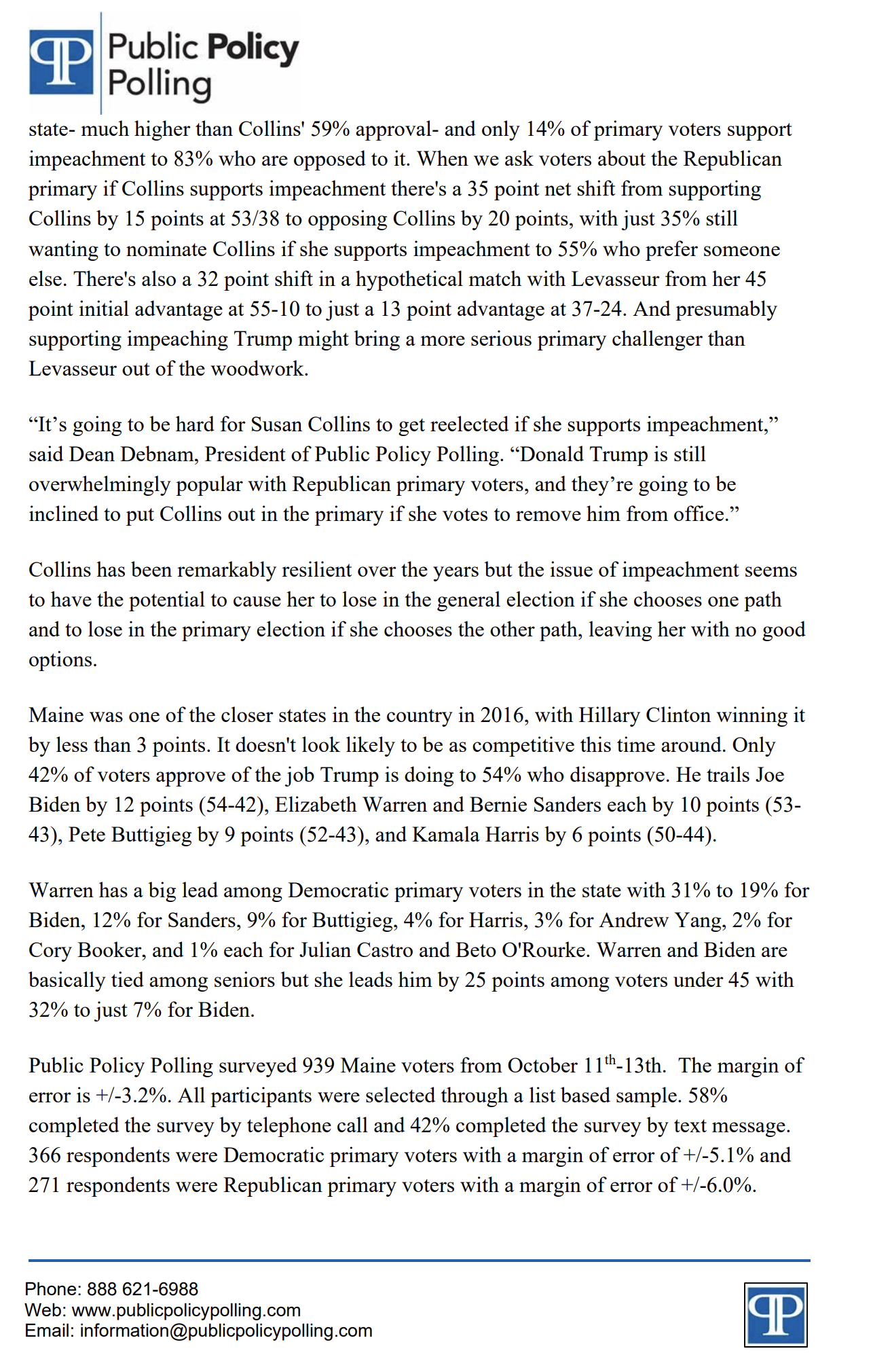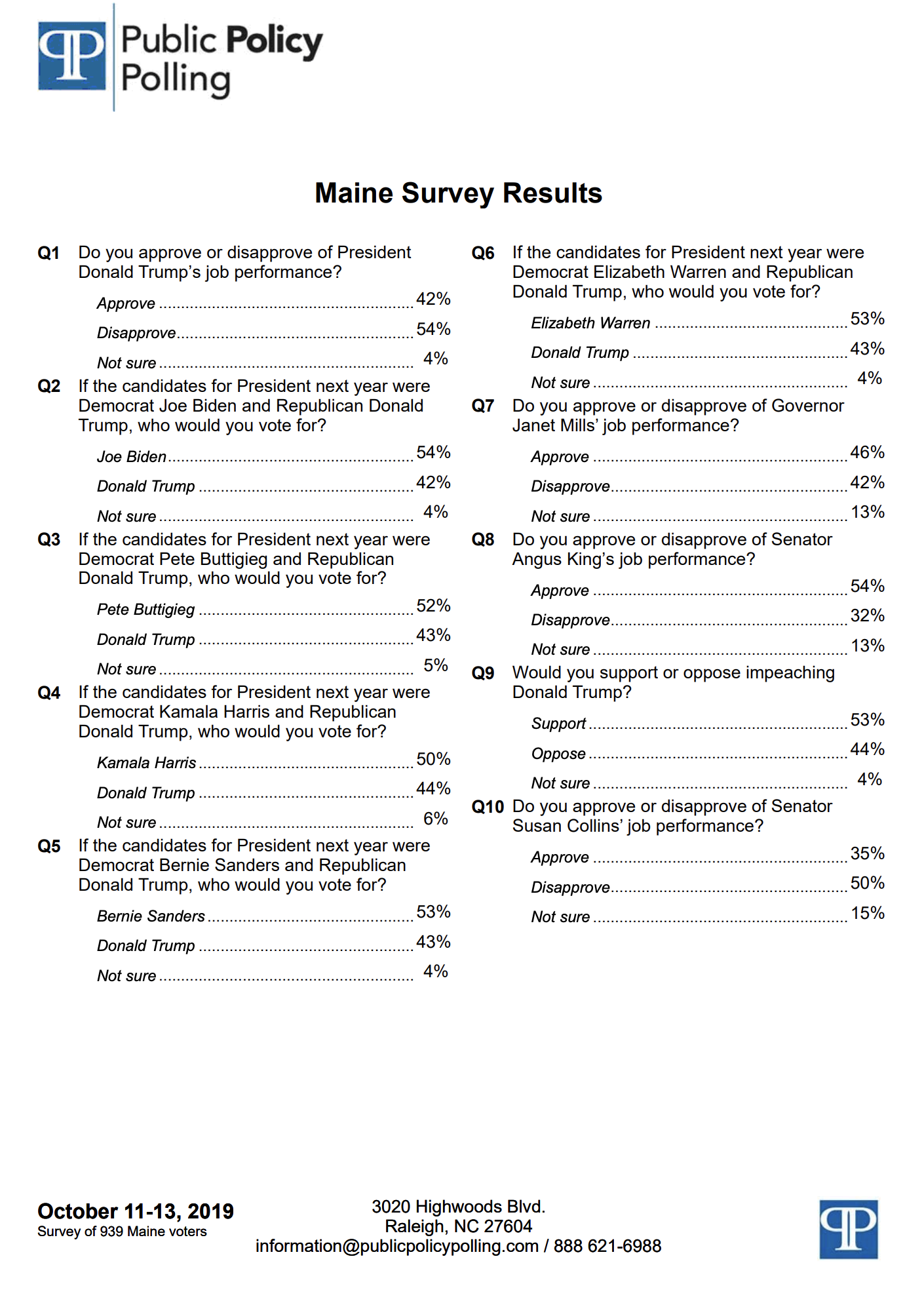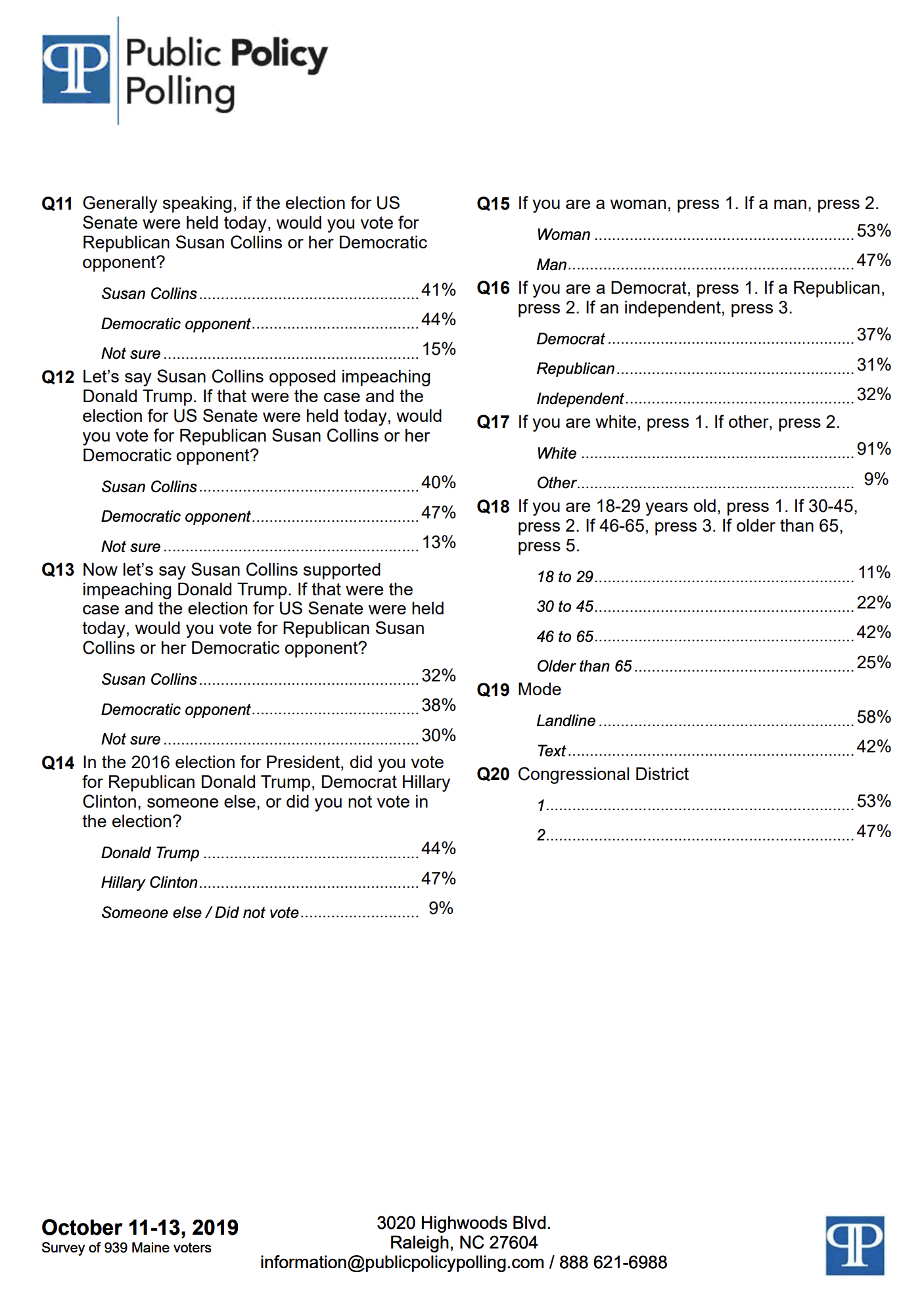Senator Susan Collins (R-ME) plays at being a moderate during close votes. She lets the drama increase until the very end. Then, she votes with the Republicans. Take Justice Brett Kavanaugh’s Supreme Court (SCOTUS) hearing where he was credibly accused of attempted rape, but she voted for him. This is what Collins is facing now.
Women have not been happy with her for a while. The 2018 election saw a resurgence of women in politics and following politics. With her 2020 reelection fast approaching, the people in her state have caught on to Collins’ tactics and were not very forgiving. Collins did very poorly in a new poll by the more liberal Public Policy Polling.
Her approval rating among Maine voters has plummeted to 35 percentage points. At the same time, 50 percent of the state’s voters disapprove. When asked about a generic Democratic candidate, she lost 44 percent to 41 percent.
In September, the numbers against a generic Democrat were reversed 44 percent for and 38 percent against. Maine House Speaker Sara Gideon, who has been leading the opposition against her, said:
‘At one point, maybe Senator Collins was different, but she doesn’t seem that way anymore: taking over a million dollars from drug companies and the insurance industry and voting to put Brett Kavanaugh on the Supreme Court. I’m running for Senate because I know I can make a difference, and because Mainers deserve a senator who will always put our state first.’
The senator has a big problem when the House’s impeachment inquiry has passed and is sent over to the Senate for a vote. In this case, the House serves as the prosecutor/investigators Normally, the attorney general (AG) does the investigation, but AG Barr refused. Then, the Senate becomes the jury presided over by SCOTUS Chief Justice John Roberts.
Collins has been silent about the Trump impeachment inquiry. A full 53 percent of her state’s voter support his impeachment. Of course, the Republican primary voters revealed only a 14 percent approval.
President of Public Policy Polling Dean Debnam said:
‘It’s going to be hard for Susan Collins to get reelected if she opposes impeachment. She’s already lost a lot of her crossover support from Democrats, and that would cause her to lose even more.’
However, the National Republican Senatorial Committee dismissed the poll, pointing to Public Policy Polling’s political leanings.
The National Republican Senatorial Committee (NRSC) spokesperson Nathan Brand did not give the poll much credence in a statement:
‘Public Policy Polling (PPP) is an arm of the Democratic Party, and their manufactured “polls” are not worth the paper they’re printed on. Washington special interests are trying to distract while their handpicked candidate, Sara Gideon, faces ongoing ethics investigations, criticism for refusing to talk to the media or voters, and her ties to dark money organizations.’
Collins became the state’s U.S. senator in 1996.
Public Policy Polling interviewed 939 random Maine voters between October 11 through 13. The margin of error was +/- 3.2 percentage points.
The Mueller Report Adventures: In Bite-Sizes on this Facebook page. These quick, two-minute reads interpret the report in normal English for busy people. Mueller Bite-Sizes uncovers what is essentially a compelling spy mystery. Interestingly enough, Mueller Bite-Sizes can be read in any order.

















